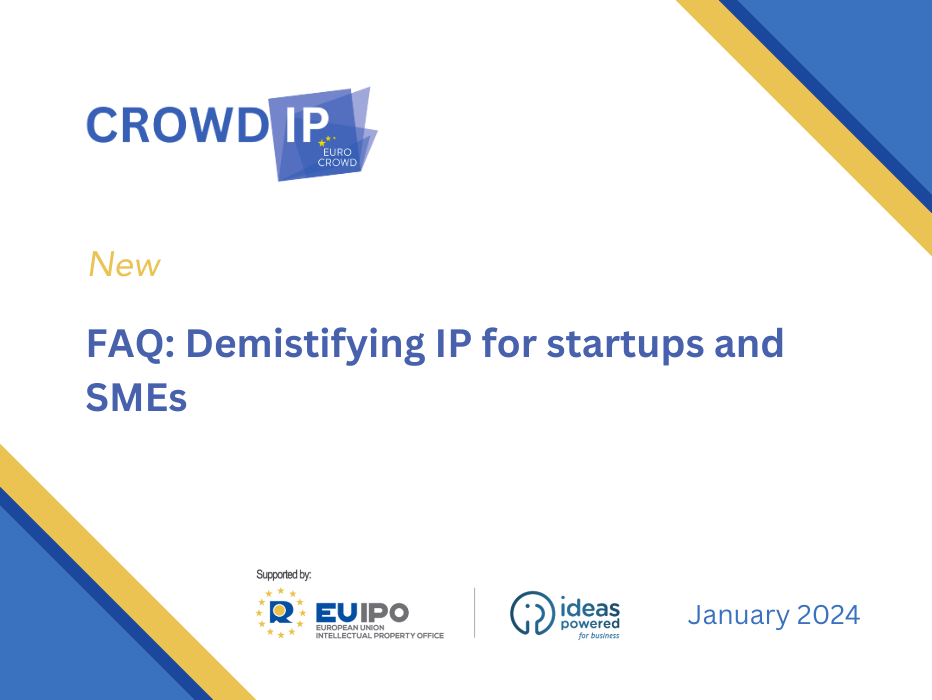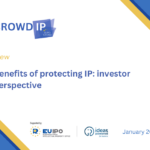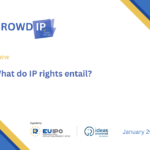CrowdIP
FAQ: Demistifying IP for startups and SMEs

Intellectual Property (IP) is a complex subject for many small businesses, but addressing common questions with clear answers can help to better make use of it. Here's a list of frequently asked questions and useful answers that might help:
What is Intellectual Property (IP)?
Answer: Intellectual Property refers to creations of the mind, such as inventions, literary and artistic works, designs, symbols, names, and images used in commerce. It's protected by law through patents, copyrights, trademarks, and trade secrets.
Why is IP Important for Startups and SMEs?
Answer: IP is a strategic asset that protects your unique ideas, products, and brand. It provides a competitive edge, attracts investors, and can be monetized through licensing or selling.
What Types of IP are Relevant to Startups?
Answer: Patents for inventions, trademarks for brands, copyrights for creative works, and trade secrets for confidential business information are relevant. Design rights may apply to the visual design of products.
How Can I Protect My Idea or Invention?
Answer: Consider filing for a patent to protect inventions. Keep detailed records, use non-disclosure agreements, and limit disclosure until protection is secured.
Do I Automatically Own IP Created by Employees or Contractors?
Answer: It depends on the employment or contractual agreement. In many cases, the default is that the employer or contracting party owns the IP, but this should be clearly stated in agreements.
When Should I Consider Trademark Registration?
Answer: Register your trademark early, especially if it's crucial for branding. It provides exclusive rights and helps avoid legal issues down the road.
How Long Does IP Protection Last?
Answer: The duration varies. Patents typically last 20 years, trademarks can be renewed indefinitely, and copyrights last the lifetime of the creator plus 70 years.
Can I Protect Software or App Ideas?
Answer: Yes, you can protect software through copyrights and, in some cases, patents. Consider consulting with an IP attorney for the best approach.
Is IP Protection Expensive for Startups?
Answer: Costs vary, but some protection measures, like keeping trade secrets, can be cost-effective. Consider the long-term benefits and potential return on investment.
What If Someone Infringes on My IP?
Take prompt action. Consult with an attorney, send cease-and-desist letters, and consider legal proceedings if necessary.
Can I Share My Idea Without Losing IP Rights?
Yes, but take precautions. Use non-disclosure agreements and be selective about what, how, and when you share information.
What is Prior Art in Patenting?
Prior art refers to existing public knowledge and documentation related to an invention. It's crucial to assess before filing a patent to ensure novelty.
Do I Need IP Protection if I'm Not Selling Yet?
Yes. Protecting IP early establishes ownership and prevents others from claiming similar ideas. It's an investment in the future of your business.
How Can I Learn More About IP?
Attend workshops, seek online resources, and consider consulting with an IP attorney. Organizations like the European Union Intellectual Property Office (EUIPO) or the World Intellectual Property Organization (WIPO) offer valuable guides.
Navigating intellectual property can be empowering for startups and SMEs. Seeking professional advice when needed and staying proactive in protecting your unique assets contribute to the long-term success of your business.
Disclaimer: The content provided by EUROCROWD in this post is intended for general informational purposes only. This information is not intended to constitute legal advice or provide bespoke solutions to specific problems. EUROCROWD endeavours to offer guidance to help individuals and businesses protect their intellectual property (IP). However, readers are expressly advised that the information presented should not be considered a substitute for professional advice or legal counsel. While we strive to ensure the accuracy and timeliness of the information shared, laws and regulations may change, and the content may not reflect the most current legal standards or interpretations. Your first step might be to visit EUIPO - Ideas Powered for Business: The European Union Intellectual Property Office (EUIPO) offers a platform called Ideas Powered for Business. It provides tools and resources for businesses to manage and protect their IP https://business.ideaspowered.eu



